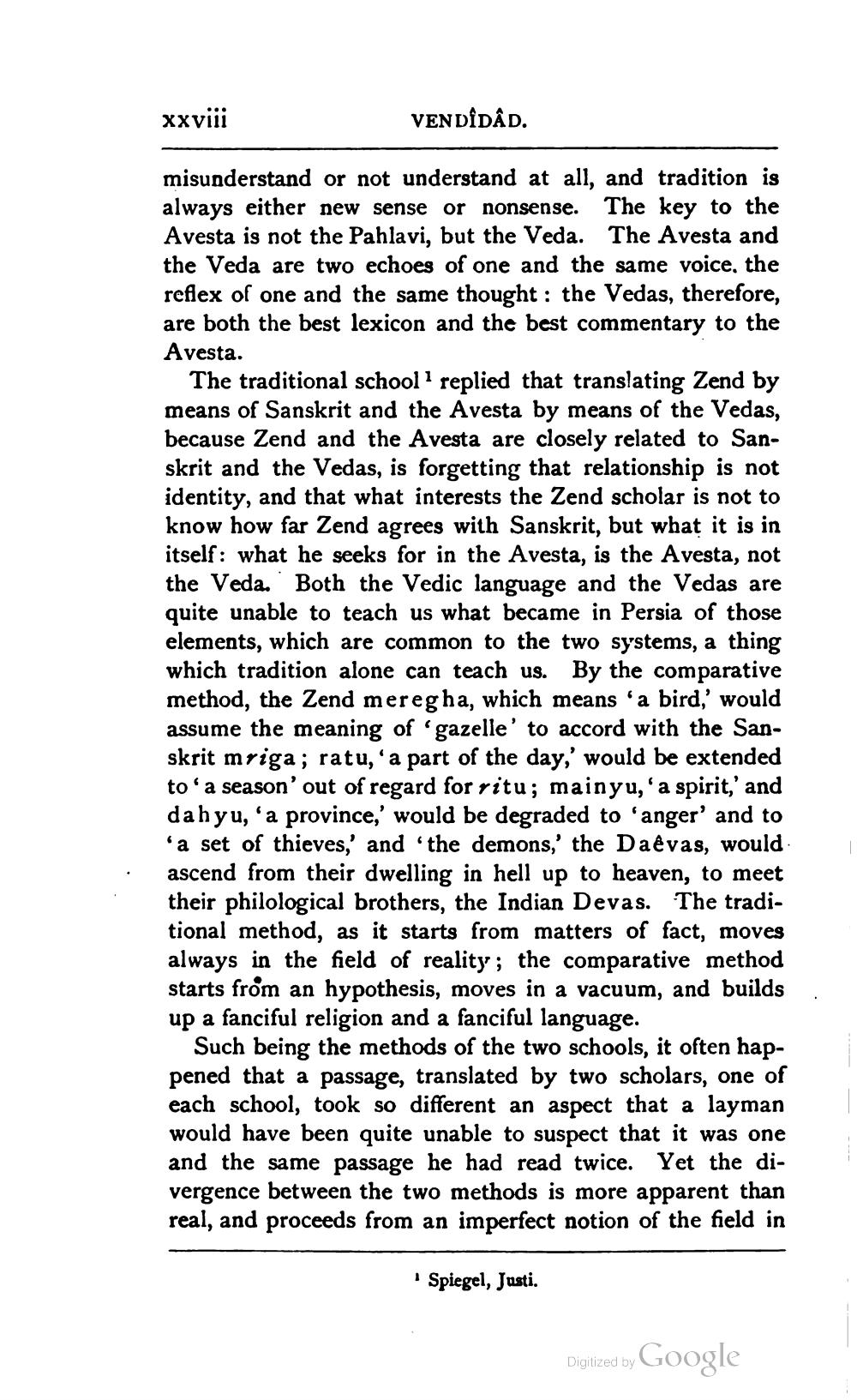________________
xxviii
VENDÎDÂD.
misunderstand or not understand at all, and tradition is always either new sense or nonsense. The key to the Avesta is not the Pahlavi, but the Veda. The Avesta and the Veda are two echoes of one and the same voice, the reflex of one and the same thought: the Vedas, therefore, are both the best lexicon and the best commentary to the Avesta.
The traditional school1 replied that translating Zend by means of Sanskrit and the Avesta by means of the Vedas, because Zend and the Avesta are closely related to Sanskrit and the Vedas, is forgetting that relationship is not identity, and that what interests the Zend scholar is not to know how far Zend agrees with Sanskrit, but what it is in itself: what he seeks for in the Avesta, is the Avesta, not the Veda. Both the Vedic language and the Vedas are quite unable to teach us what became in Persia of those elements, which are common to the two systems, a thing which tradition alone can teach us. By the comparative method, the Zend meregha, which means 'a bird,' would assume the meaning of 'gazelle' to accord with the Sanskrit mriga; ratu, 'a part of the day,' would be extended to' a season' out of regard for ritu; mainyu,' a spirit,' and dahyu, 'a province,' would be degraded to 'anger' and to 'a set of thieves,' and 'the demons,' the Daêvas, would ascend from their dwelling in hell up to heaven, to meet their philological brothers, the Indian Devas. The traditional method, as it starts from matters of fact, moves always in the field of reality; the comparative method starts from an hypothesis, moves in a vacuum, and builds up a fanciful religion and a fanciful language.
Such being the methods of the two schools, it often happened that a passage, translated by two scholars, one of each school, took so different an aspect that a layman would have been quite unable to suspect that it was one and the same passage he had read twice. Yet the divergence between the two methods is more apparent than real, and proceeds from an imperfect notion of the field in
'Spiegel, Justi.
Digitized by
Google




